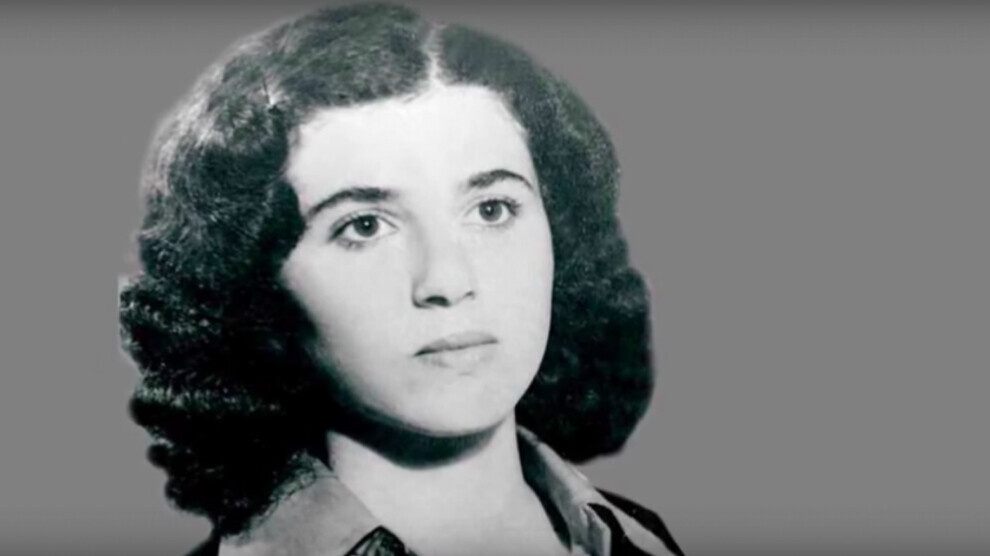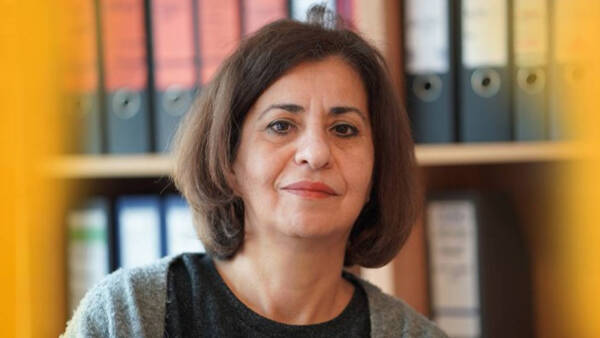TJK-E Spokesperson Ayten Kaplan: Sakine Cansız is the symbol of freedom
“Sakine Cansız is the symbol of freedom,” said TJK-E Spokesperson Ayten Kaplan, stressing that they would protect the legacy left by Sakine Cansız to the Kurdish Women's Movement and crown it with victory.

AXÎN BAHAR
News Center- Sakine Cansız (Sara), one of the founders of the PKK, Fidan Doğan (Rojbîn), Paris Representative of the Kurdistan National Congress (KNK), and Leyla Şaylemez (Ronahî) were murdered in Paris on January 9, 2013. Although years have passed since the murder of three revolutionary Kurdish women, the anger of Kurdish women against their murder is like the first day.
The life of Sakine Cansız full of struggle and resistance keeps inspiring Kurdish women. Her resistance in the Diyarbakır military prison, known as Prison No.5, which was turned into a “torture house” and among “10 worst prisons in the world” strengthened all women. Sakine Cansız, whose “struggle” against the system never ended when she was alive, left a great legacy to Kurdish women.
“The struggle of Sakine Cansız is maintained by Kurdish and international women,” said Ayten Kaplan, Spokesperson of the Kurdish Women’s Movement in Europe (TJK-E), stressing the policies against the pioneering women of the Kurdish Women's Movement.
“We talk about a mindset that tries to prevent women’s freedom and empowerment, aiming to bring the Kurdish people to their knees. First, in Paris, the heart of Europe, three women were murdered, and three years later three women were murdered in Kurdistan (Sêvê Demir, Pakize Nayır and Fatma Uyar, who were murdered in the Silopi district of Şırnak province on January 4, 2016). Women are targeted because they have the power to change their society and preserve their history, language and identity.”
‘We face a mindset believing that the body cannot do anything if the head is cut off’
Ayten Kaplan also talked about the critical roles of women in society and gender-based violence. “Women are attacked because they struggle against gender stereotypes to find and improve themselves and rewrite their history. We face a mindset believing that the body cannot do anything if the head is cut off in order to 'shape women and society' according to itself. But the Kurdish women have already broken this mindset.”
‘She inspired Kurdish women’
Sakine Cansız, one of the women murdered in Paris in 2013, was a woman who “rose up against oppression”, said Ayten Kaplan. “She inspired Kurdish women and left a legacy to us. I had the chance to meet her and speak with her. I can say that she was a revolutionary woman and politician who was irreplaceable.”
‘She is the symbol of freedom’
Sakine Cansız “is a symbol, a symbol of freedom and the will of women,” Ayten Kaplan said, adding: “She broke gender stereotypes because she believed change is possible. She inspired women to be aware of their own power. We want to protect the legacy left by her to the Kurdish Women's Movement and crown it with victory. She was one of the comrades that I am most inspired by. Her stance, struggle and fight impressed me. She was a brave woman, who resisted the enemy.”
‘The case is not closed for us’
Ömar Güney, a Turkish citizen in his thirties, was the main suspect in the murder case of the three Kurdish women in Paris. He was charged with killing the Kurdish women; however, he died in a hospital from a brain tumor in December 2016 before he stood trial. Then, France closed the case. “The case is not closed for us,” said Ayten Kaplan. “There is evidence but they do not serve their (France) political interests. Due to political and financial interests, they wanted to cover up this massacre because they did not want to have a bad relationship with Türkiye. The real murderers have not stood trial yet. There are, of course, efforts to reopen the investigation into the murder of three Kurdish women and these efforts will continue until the real perpetrators are brought to justice.”
Protests across Europe
Ayten Kaplan told NuJINHA that many “big marches” would be held across Europe on the anniversary of the massacre. “Simultaneous protests will be organized in Nordic countries, Austria, France, the Netherlands, Belgium, Switzerland and maybe England. At the marches, we will ask France ‘The murderers are known; why are you waiting?’ On January 9, black wreaths will be placed at French consulates or embassies in all countries. On January 11, we will organize a ‘big march’.”

